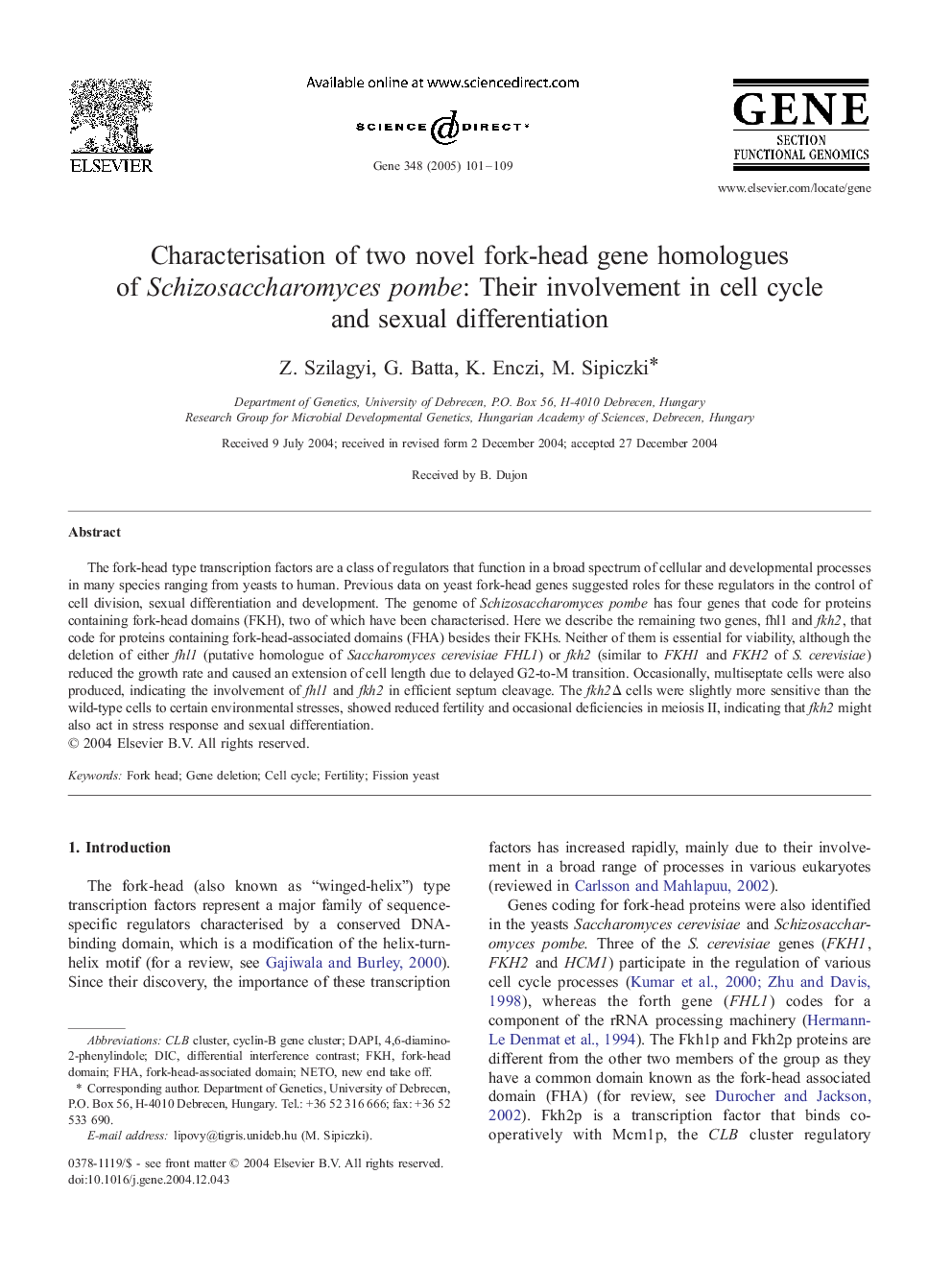| Article ID | Journal | Published Year | Pages | File Type |
|---|---|---|---|---|
| 9127194 | Gene | 2005 | 9 Pages |
Abstract
The fork-head type transcription factors are a class of regulators that function in a broad spectrum of cellular and developmental processes in many species ranging from yeasts to human. Previous data on yeast fork-head genes suggested roles for these regulators in the control of cell division, sexual differentiation and development. The genome of Schizosaccharomyces pombe has four genes that code for proteins containing fork-head domains (FKH), two of which have been characterised. Here we describe the remaining two genes, fhl1 and fkh2, that code for proteins containing fork-head-associated domains (FHA) besides their FKHs. Neither of them is essential for viability, although the deletion of either fhl1 (putative homologue of Saccharomyces cerevisiae FHL1) or fkh2 (similar to FKH1 and FKH2 of S. cerevisiae) reduced the growth rate and caused an extension of cell length due to delayed G2-to-M transition. Occasionally, multiseptate cells were also produced, indicating the involvement of fhl1 and fkh2 in efficient septum cleavage. The fkh2Î cells were slightly more sensitive than the wild-type cells to certain environmental stresses, showed reduced fertility and occasional deficiencies in meiosis II, indicating that fkh2 might also act in stress response and sexual differentiation.
Keywords
Related Topics
Life Sciences
Biochemistry, Genetics and Molecular Biology
Genetics
Authors
Z. Szilagyi, G. Batta, K. Enczi, M. Sipiczki,
